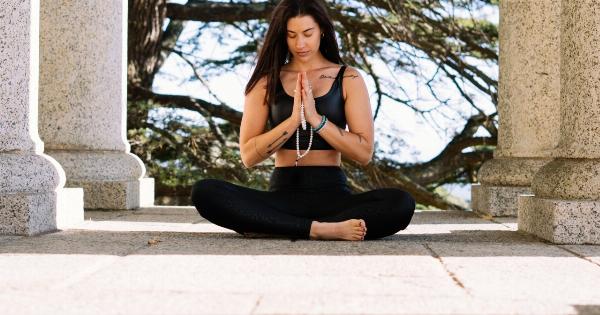Contemplation is the art of quieting the mind, reflecting, and gaining insight into oneself and the world.
It is a powerful practice that has been used for centuries to cultivate a sense of inner peace, enhance self-awareness, and find clarity in decision-making. In this article, we will explore effective methods for contemplation that can help you embark on a transformative journey of self-discovery and personal growth.
The Benefits of Contemplation
Before diving into various methods of contemplation, it is essential to understand the benefits it can bring to your life. Contemplation offers a multitude of advantages, including:.
1. Enhanced Self-Awareness
Regular contemplation allows you to delve deep into your thoughts, emotions, and beliefs. By observing your internal landscape with non-judgmental awareness, you can gain a deeper understanding of yourself, your patterns, and your triggers.
2. Reduced Stress and Anxiety
Contemplation provides a respite from the chaos of daily life. Taking dedicated time to disconnect from external stressors and reconnect with your inner world can significantly reduce stress and anxiety levels.
It promotes relaxation and helps create a calmer state of mind.
3. Increased Clarity and Focus
Regular contemplation allows your mind to settle and quiet down. As a result, you will experience increased clarity, mental focus, and improved decision-making abilities.
By training your mind to let go of distractions and stay present, you can enhance your productivity and efficiency.
4. Heightened Creativity
Contemplation paves the way for enhanced creativity. When your mind is at ease and free from daily worries, you open yourself up to fresh perspectives and innovative ideas.
It allows you to tap into your inner creative potential and unlock new levels of inspiration.
Effective Methods for Contemplation
1. Mindful Breathing
One of the simplest and most accessible forms of contemplation is mindful breathing. Find a quiet space, sit in a comfortable position, and focus your attention on your breath.
Observe the sensation of your breath as you inhale and exhale, without trying to control or change it. This practice helps anchor you in the present moment and cultivates a deep sense of calm.
2. Guided Meditation
Guided meditation is an excellent way to begin your contemplation journey, especially if you’re new to the practice. There are numerous guided meditation resources available online or through mobile apps.
These guided sessions provide step-by-step instructions, soothing music, and prompts for self-reflection. It helps quiet the mind and guides you through various aspects of contemplation.
3. Reflective Journaling
Journaling is a powerful tool for self-reflection. Set aside a dedicated time each day to write down your thoughts, feelings, and experiences.
Use your journal to explore your emotions, examine challenging situations, or gain insights into recurring patterns. The act of writing itself can be cathartic, and it helps you develop a deeper understanding of yourself.
4. Nature Contemplation
Connecting with nature can be a profound way to engage in contemplation. Find a quiet outdoor space, such as a park or garden, and immerse yourself in the natural surroundings. Pay attention to the sights, sounds, and sensations that arise.
Allow yourself to be fully present and observe the interconnectedness of all living things. Nature has a way of grounding us and reminding us of our place in the world.
5. Walking Meditation
Walking meditation combines contemplation with physical movement. Find a peaceful path or a quiet area to walk, preferably in nature.
As you take each step, bring your attention to the sensation of walking—the feel of the ground beneath your feet, the movement of your legs, and the sway of your body. This practice helps cultivate mindfulness and deepens your connection to the present moment.
6. Visualization
Visualization is a powerful technique that allows you to create mental images of your desired outcomes or experiences.
Find a comfortable position, close your eyes, and visualize yourself achieving your goals, or imagine being in a peaceful and serene environment. Engage all your senses to make the visualization more vivid and immersive. Visualization helps clarify your intentions and can serve as a source of inspiration and motivation.
7. Body Scan
A body scan is a mindfulness practice that involves systematically bringing awareness to each part of your body, starting from the top of your head all the way down to your toes.
As you move your attention through each body part, notice any sensations, tensions, or areas of discomfort. This practice helps you develop a connection between your mind and body and cultivates a sense of deep relaxation.
8. Mindful Eating
Often overlooked, mindful eating is a beautiful way to practice contemplation during your daily meals. Instead of rushing through your meals or eating unconsciously, bring your full attention to each bite.
Notice the taste, texture, and flavors of your food. Chew slowly and savor each moment. Mindful eating allows you to appreciate the nourishment your food provides and enhances the overall eating experience.
9. Silent Retreats
If you’re ready to dive deeper into your contemplation practice, consider attending a silent retreat. Silent retreats provide a designated time and space for intensive contemplation and self-reflection.
By temporarily disconnecting from the outside world and observing silence, you create an environment conducive to deep introspection and profound insights.
10. Mindful Technology Usage
In today’s digital age, it is essential to be mindful of our technology usage. Practice contemplation by setting aside designated “tech-free” times or spaces. Turn off notifications and create boundaries around your digital devices.
Instead of mindlessly scrolling through social media or consuming digital content, use technology intentionally and selectively. By doing so, you create more space for contemplation and undistracted self-reflection.
Conclusion
Contemplation is a valuable practice that can foster personal growth, inner peace, and self-awareness.
By incorporating effective methods such as mindful breathing, guided meditation, journaling, and nature contemplation, you can embark on a transformative journey of self-discovery. Remember, there is no one-size-fits-all approach to contemplation; experiment with various techniques and discover what resonates with you. Embrace the power of contemplation and unlock the vast wisdom that lies within.






























